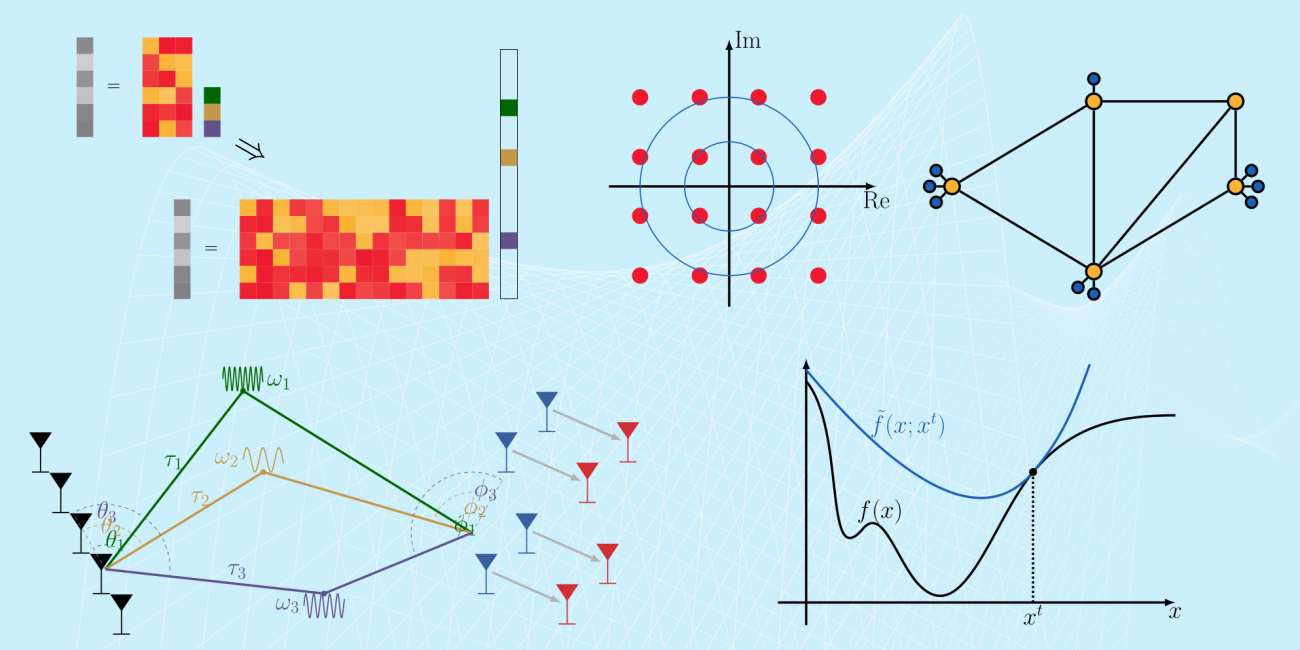Besides our independent research we are involved in several national and international research projects.
Open6GHub
PRIDE
DFG Project “The partial relaxation method in direction-of-arrival estimation: Design and Analysis” PRIDE
EXPRESS Project I (24.06.2015-23.06.2018) and EXPRESS II (18.06.2018-31.12.2021)
In the EXPRESS project we study the compressed sensing (CS) problem in the presence of side information and additional constraints. Side information as well as constraints are due to a specific structure encountered in the system model and may originate from the structure of the measurement system or the sensing matrix (shift-invariance, subarray structure, etc.), the structure of the signal waveforms (integrality, box constraints, constellation constraints such as non-circularity, constant modulus, finite constellation size, etc.), the sparsity structure of the signal (block or group sparsity, rank sparsity, etc.) or the channel, as well as the structure of the measurements (quantization effects, K-bit measures, magnitude-only measurements, etc.). We will investigate in which sense structural information can be incorporated into the CS problem and how it affects existing algorithms and theoretical results. Based on this analysis, we will develop new algorithms and theoretical results particularly suited for these models. It is expected, on the one hand, that exploiting structure in the measurement system, i.e., the sensing matrix, can lead to fast CS algorithms with novel model identifiability conditions and perfect reconstruction/recovery results. In this sense, exploiting structure in the observed signal waveforms and the sparsity structure of the signal representation can lead to reduced complexity CS algorithms with simplified recovery conditions and provably enhanced convergence properties. On the other hand, we expect that quantized measurements, which are of great importance when considering cost efficient hardware and distributed measurement systems, will generally result in a loss of information for which new algorithms and perfect recovery conditions need to be derived.
As an application in this project, we consider collaborative (distributed) multi-dimensional spatial spectrum sensing, i.e., sensing along the frequency-, time-, and space-axes using a network of multi-antenna sensing devices. Depending on the signal model under consideration, the frequency-, time-, and space dependence of the measurements can emerge in several ways. For example, the sensing parameters of interest can include directions-of- arrival, carrier frequencies, and Doppler-shifts. The EXPRESS project aims at exploiting the underlying sparsity properties in the signal model for this application while incorporating the aforementioned various types of side information.
The EXPRESS project is funded by the DFG within the priority program on Compressed Sensing in Information Processing (CoSIP) and is a colaboration of the Communications Research Laboratory, TU Ilmenau, the Communication Systems Group, TU Darmstadt, and the Discrete Optimization Group, TU Darmstadt.


